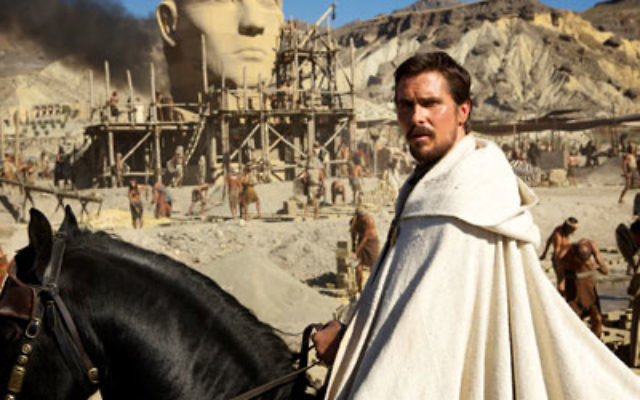Bible story on a grand scale
FILM REVIEW by Don Perlgut. Exodus: Gods and Kings is a lavish production where the action is compelling as director Ridley Scott’s attempts to outdo its antecedents, particularly Cecil B DeMille’s 1956 classic The Ten Commandments.
Although Exodus is not a great film – there are a number of flat parts and the depth of characterisation pales considerably in comparison to Scott’s Gladiator – most fans of the biblical narrative should be satisfied.
As to whether or not the world now needs another big film retelling of the story of the freeing of the Jews and the flight from Egypt, that’s a separate question. Unlike Darren Aronofsky’s Noah, which reinterpreted the flood as a parable for global warming, this Exodus has little new to say about our modern world of belief.
As Moses, Christian Bale’s extraordinary performance anchors the film. It’s hard to believe that this is the same actor who just played Irving Rosenfeld with a “comb-over” in American Hustle.
From anguished emotion to warrior to impassioned leader, Bale carries the role with aplomb – and thus carries the film: a true 21st century Moses.
Australian actor Joel Edgerton plays Ramses, rarely seen on screen wearing anything other than yellow and gold clothing. It’s a strong performance, but in the match-up against Yul Brynner (DeMille’s 1956 Ramses), I go with Yul.
There are some jarring casting choices, proof that once actors develop an on-screen “persona”, it’s hard to escape.
As the older Pharaoh (Seti I), John Turturro certainly looks the part (his Italian features easily “go Mediterranean”), but I had a hard time forgetting that it was Turturro, star of many urban American films.
Similarly it’s hard to forget that it’s actually Sigourney Weaver (Alien, Dave) playing Tuya. A smirking Ben Mendelsohn (the nasty viceroy Hegep) comes off better, inhabiting the character with slimy ease.
The 10 plagues are suitably impressive, as awe-inspiring as any on screen to date. I found myself saying the Hebrew name of each plague as it appeared – it’s a genuinely thrilling part of the film.
Strangely, however, the film does not include any scene where Moses pleads with Pharaoh to let his people go.
There are some fascinating interpretations: the Red Sea does not so much as “part” in two as “recede” to one side, as if prior to a tsunami.
Most troubling, however, is the appearance of a small boy with a strong English accent (most accents are mild British) as the “messenger” of God: how the Almighty speaks to Moses.
This is a high degree of adaptation and interpretation, one that Christian audiences will probably be comfortable with, but very few Jews would be.
The film ends (only a minor spoiler here: we all know the plot) with a whimper as Moses heads off into the distance. Surely a triumphal scene over the Egyptian armies would have been more dramatic.
PHOTO of Christian Bale as Moses.


comments